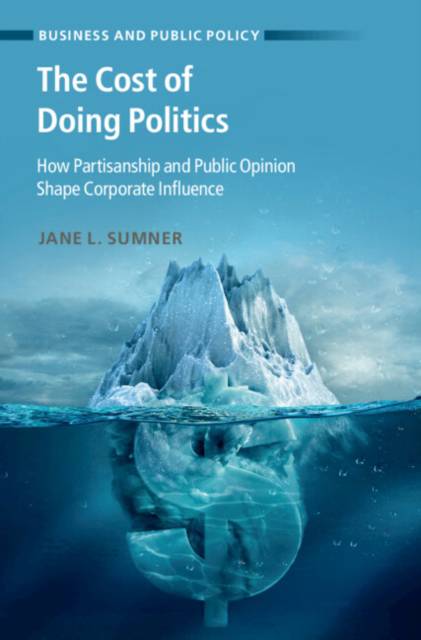
- Afhalen na 1 uur in een winkel met voorraad
- Gratis thuislevering in België vanaf € 30
- Ruim aanbod met 7 miljoen producten
- Afhalen na 1 uur in een winkel met voorraad
- Gratis thuislevering in België vanaf € 30
- Ruim aanbod met 7 miljoen producten
Zoeken
The Cost of Doing Politics
How Partisanship and Public Opinion Shape Corporate Influence
Jane L Sumner
€ 152,95
+ 305 punten
Omschrijving
Using quantitative and qualitative evidence, Sumner shows how consumer boycotts can work to dissuade companies from donating money to politicians, but may also encourage companies to attempt influence by largely invisible means. Boycotts do not work as many people expect - by threatening sales. Instead, Sumner shows how boycotts are less a statement of consumer behaviour than a way for people to signal their political inclinations, and they primarily hurt companies by tarnishing their reputation. Political influence is about building relationships, which means that companies have many more options for influence than just PAC contributions and formal lobbying. With these options available, companies can decide how to influence politics when they need to, and the tarnish of boycotts to a company's image can push some businesses to pursue options that are less noticeable to the public.
Specificaties
Betrokkenen
- Auteur(s):
- Uitgeverij:
Inhoud
- Aantal bladzijden:
- 260
- Taal:
- Engels
- Reeks:
Eigenschappen
- Productcode (EAN):
- 9781009123259
- Verschijningsdatum:
- 5/05/2022
- Uitvoering:
- Hardcover
- Formaat:
- Genaaid
- Afmetingen:
- 152 mm x 229 mm
- Gewicht:
- 517 g

Alleen bij Standaard Boekhandel
+ 305 punten op je klantenkaart van Standaard Boekhandel
Beoordelingen
We publiceren alleen reviews die voldoen aan de voorwaarden voor reviews. Bekijk onze voorwaarden voor reviews.







